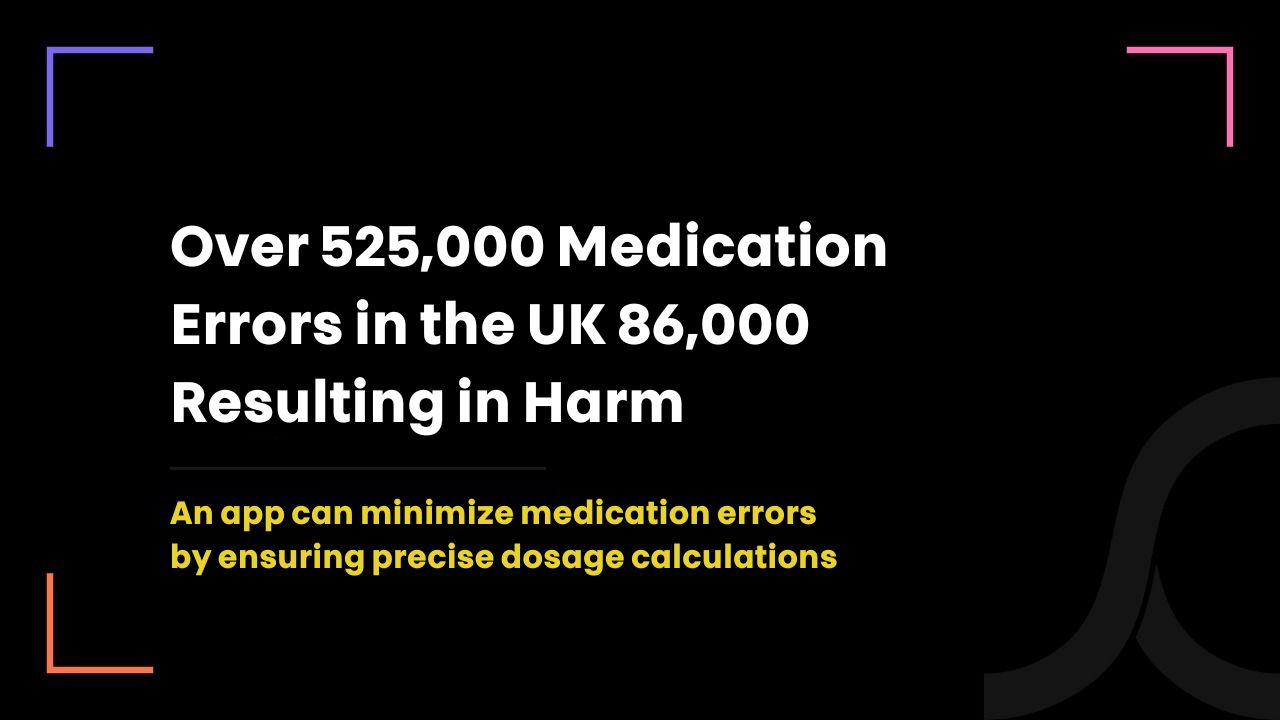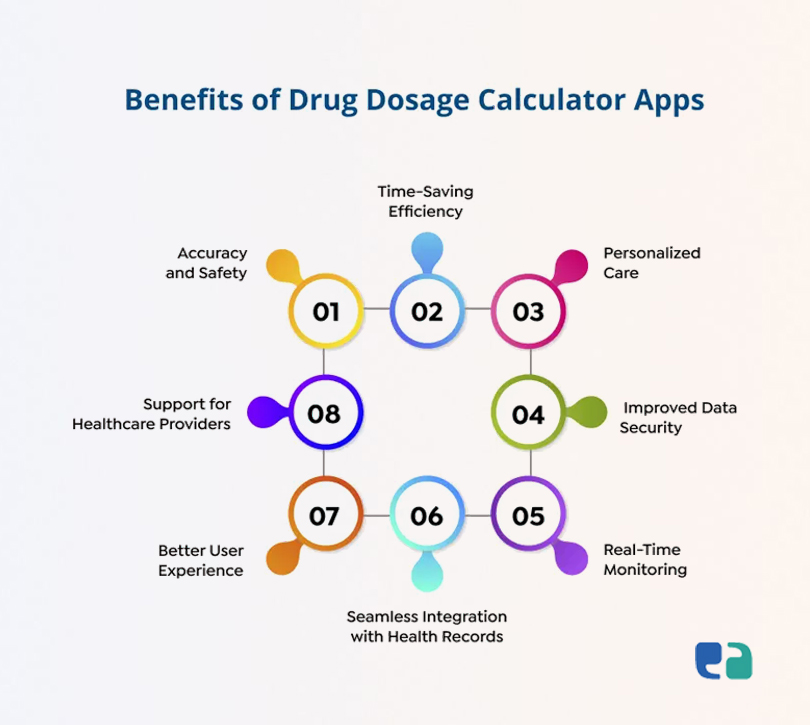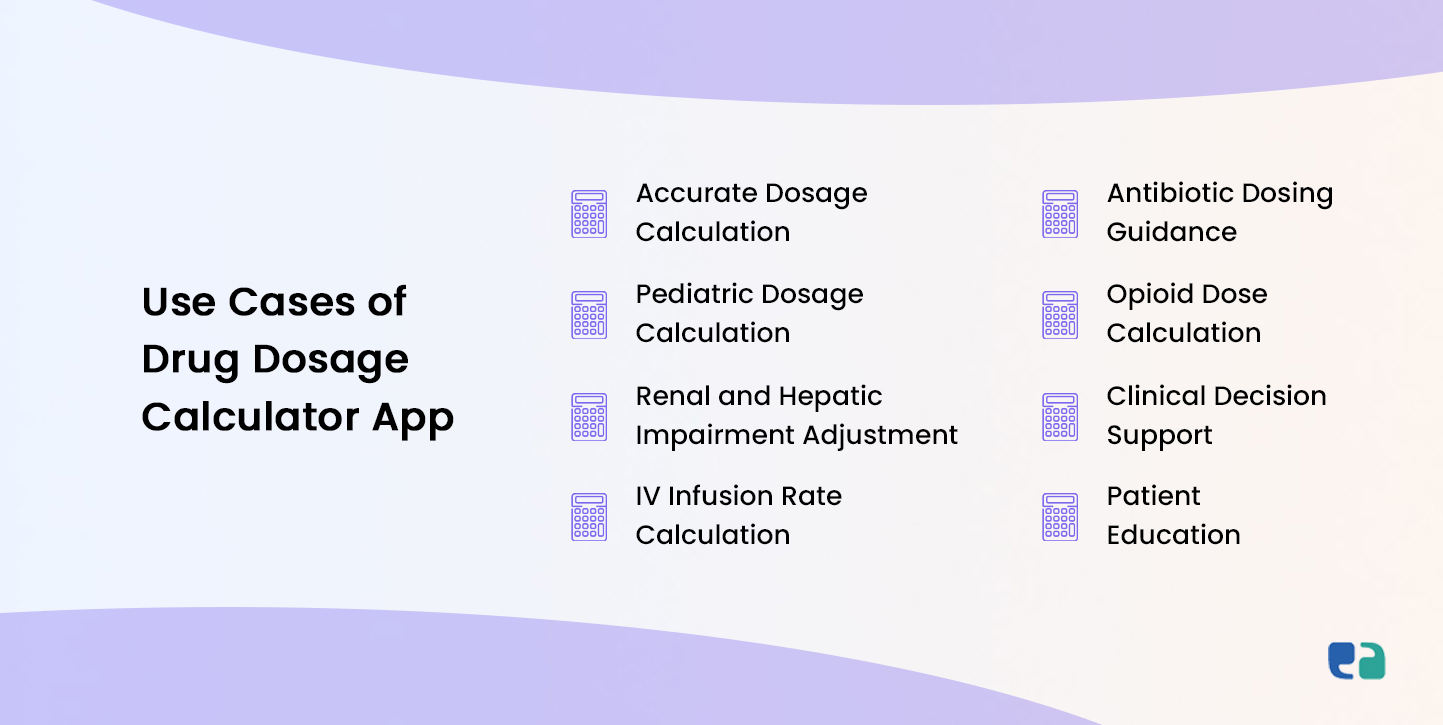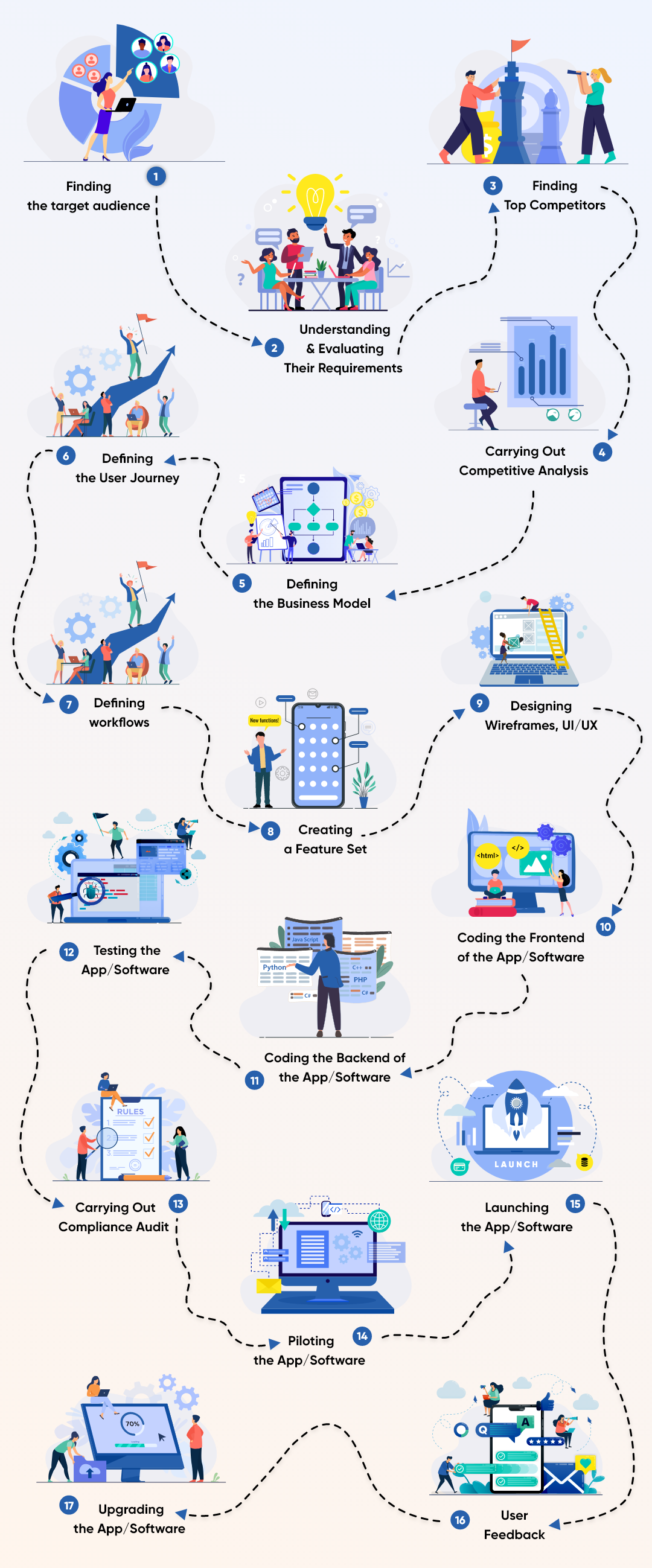Developing a Drug Dosage Calculator App: Top Apps, Features and Technology

2 months ago
In this blog, we will focus on a bigger problem that Canadian healthcare is facing—medication errors.
This is an area that is impacting most people, but no one is talking about it.
Getting drug doses right is very important in healthcare, but miscalculations are taking lives.
You will be shocked to know that 525,000 medication error incidents have happened over six years.
From mild discomfort to life-threatening complications, medication errors are a big problem.
Reasons for miscalculations:
- Confusion between units like milligrams and micrograms
- Using the wrong equipment
- Simple math errors
For healthcare, it is a crisis, but for health-tech startups, this is an opportunity to build a drug dosage calculator app.

The Need for Accurate Drug Dosage Calculation
The benefits of a custom drug dosage calculator are not only for patients but for everyone involved in the treatment process, including:
1. Consumers and Caregivers
Most patients take multiple medications on a daily basis, so it is natural to forget or become confused about the doses.
However, there are mobile applications like MedMinder that feature a pill dispenser. They send reminders to patients in case of missed doses or overdoses.

2. Health Science Students
For science students and researchers, a drug dosage calculator is a very important tool.
These solutions help them practice and improve their analysis skills.
It ensures they are prepared for real-world situations.
3. Healthcare Providers
It doesn't matter how experienced a doctor is; they can make mistakes under pressure.
However, using an innovative tool can reduce such possibilities.
Here is another example: the Infinite Dose mobile application that provides quick, reliable dosage calculations, checks for errors, and offers up-to-date drug information.

This app is a genius for situations like calculating IV infusion rates.

Popular Drug Dosage Calculator Apps You Can Get Inspired From
Let’s take a look at three popular drug dosage calculator apps before you build your own:
1. Epocrates

This app has more than one million users.
Isn't it amazing.
For healthcare professionals, it is their most loved tool and the reason is its 3 amazing features:
- Disease information
- Drug interaction checkers
- Dosage calculators
This app considers factors like body surface area, medication strength, and unit conversions to ensure accurate results.
Tip for startups: Build an app that goes beyond the basics of calculation. Features like interaction checkers and alternative medication suggestions give a better experience to providers and patients.
2. Skyscape Medical Library

This app is popular due to its user-friendly design.
Skyscape offers:
- medical resources
- a symptom analyzer
- easy-to-use dosage calculators
Tip for startups: A clean and intuitive UI is very important. Also, add good resources; it adds value to the app.
3. Vetpocket

For veterinarians, this app is a must-have tool.
Vetpocket offers:
- Dosage calculators
- Unit conversions
- Note-taking for custom treatment plans
Tips for startups: Building a niche app makes you stand out and cuts the competition. Specializing in specific fields, like veterinary medicine, can make your mobile app more relevant and helpful for a targeted audience.
Key Takeaways for Entrprenaur/Developers
- Accuracy is everything. Ensure that calculations are precise and rigorously tested.
- Simplicity matters. A clear, user-friendly design makes a huge difference.
- Customization adds value. Letting users personalize their experience can make the app more useful.
- Integrate resources. Linking to drug databases or interaction checkers can improve the app’s credibility and functionality.


Top Features a Successful Drug Dosage Calculator App Should Include
What makes a successful app different from others is the features it incorporates. Let's explore some of the features that are patient-centric and future-ready.
1. User-Friendly Interface:
Convenience is the key to success for any app.
If your app is complicated and difficult to use, it won't appeal to users. Make sure it is user-friendly, intuitive, and has a clear layout.
For older patients, use larger fonts and suitable colors.
2. Comprehensive Drug Database:
It needs a vast and updated list of medicines, including brand and generic names, dosages, and forms like tablets or liquids.
This helps users quickly find the information they need.
3. Accurate Dosage Calculation:
It's the core feature your app should have. Make sure it works on a reliable algorithm.
Ensure it considers all factors like age, weight, and kidney function so that it can provide accurate dosages.
4. Drug Interaction Checker:
Life-saving feature.
It alerts the user about potential drug interactions when they enter their current medications.
It prevents adverse effects and ensures patient safety.
5. Side Effect Information:
This feature talks about the future side effects that can happen with each medication.
Makes patients aware so that they can take decisions about their health.
6. Customization Options:
Allow users to save their medical conditions and allergies.
This personalization feature improves the app's usefulness and makes it more relevant to patients' needs.
7. Alerts and Reminders:
- Timely reminders about medication schedules are essential.
- Users can set custom alerts to help them stay on track.
8. Offline Functionality:
Ensure your app works offline too, as drug dosage information is crucial and should not be interrupted.
These are the 17 steps that our developers follow to build a healthcare app; explore each one.

Tech Stack for Drug Dosage Calculator Apps
Tech Stack for Drug Dosage Calculator Apps
- Frameworks: React Native or Flutter for cross-platform compatibility.
- Web Technologies: HTML, CSS, and JavaScript for web-based interfaces.
- Backend:
- Language: Node.js or Python (Django) for robust server-side logic.
- Database: PostgreSQL or MongoDB for storing medication data.
- Authentication: OAuth 2.0 or JWT for secure user access.
- Encryption: SSL/TLS for data in transit; AES for data at rest.
- Third-party APIs: For drug databases, interaction checks, and dosage guidelines.
- Hosting: AWS or Google Cloud for scalability and reliability.
- Storage: Amazon S3 or similar for secure file storage.
- Unit Conversion Libraries: For accurate conversion calculations.
- Analytics Tools: For tracking user interactions and improving app performance.

Emerging Technology Trends Transforming Drug Dosage Calculator Apps
1. Telehealth Features
Some apps are integrating telehealth capabilities. You an also do.
- Allows remote consultations
- Provide better medication management for patients.

2. Artificial Intelligence (AI)
AI is revolutionizing dosage calculations.
- Analyzes patient data
- Gives personalized dosage recommendations
- Makes treatment safer and more accurate
3. Electronic Health Records (EHR) Integration
Many mobile applications are now connect directly to EHR systems.
- Easy access to patient histories and medication information.
- No need to switch between platforms.
4. Cloud Technology
- Keeps drug databases updated in real-time.
- Provides the latest information at your fingertips.
5. Mobile Accessibility
Smartphones are everywhere.
- Allowing healthcare professionals to calculate dosages quickly on the go.
Want a live demo of your custom drug dosage calculator app? You can contact our health-tech team.

